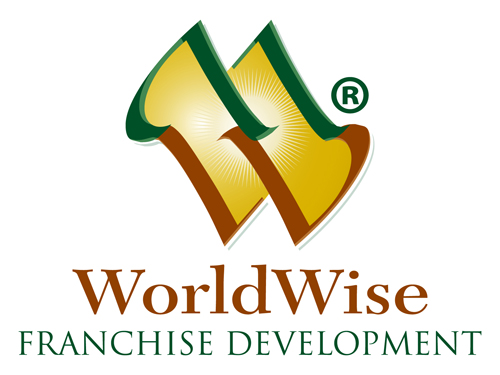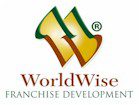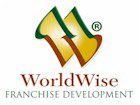Quiznos, Cold Stone Creamery, Planet Beach
Franchising, Huntington Learning Centers
Franchisees Had Trouble
By
SARAH E. NEEDLEMAN and
COULTER JONES
Sept. 10, 2014 7:42 p.m. ET

Cold Stone Creamery cited ‘extreme growth’ followed by the recession.
Quiznos, Cold Stone Creamery, Planet Beach Franchising and Huntington Learning Centers Inc. ranked among the 10 worst franchise brands in terms of Small Business Administration loan defaults.
Franchisees of the 10 brands in the ranking defaulted at more than double the rate for SBA borrowers who invested in all other chains, according to a Wall Street Journal analysis of charge-offs of all SBA-backed franchise loans in the past decade.
Put another way, franchisees of those 10 brands have left taxpayers on the hook for 21% of all franchise-loan charge-offs in the past decade, collectively failing to pay back $121 million in SBA-guaranteed loans from 2004 through 2013.
That finding comes as franchising is booming in popularity, in part because many people see it as an easier route to entrepreneurship in an uncertain economic landscape.

The owner of a Cold Stone Creamery in San Diego is now trying to sell his remaining two stores. Sam Hodgson for The Wall Street Journal
For prospective buyers faced with a growing number of options, it has become more difficult to size up a franchise chain because of the limited information available. The chains aren’t required by law to disclose their franchisees’ first-year average sales and failure rates, for example, although the Federal Trade Commission does require them to share recent bankruptcy filings and prior litigation, among other basic information.
An SBA spokesman declined to comment on the Journal’s analysis of the agency’s franchise loan data, which the Journal gained access to via the Freedom of Information Act. He said the agency’s loan data is incomplete because some lenders don’t indicate if a loan is for a franchise or for which chain when seeking the agency’s backing.
The 7(a) loan-guarantee program is the SBA’s most popular loan program by far. It was set up six decades ago to help borrowers who can’t qualify for traditional loans obtain funding to start or expand franchises and other small businesses.
The SBA guaranteed nearly $18 billion in 7(a) loans, including $2 billion for franchisees, in the fiscal year ended Sept. 30, 2013. Overall, 18% of all SBA 7(a) loans—and 13% of all such loans to franchisees—were charged off, based on The Journal’s analysis of the data from 2004 through 2013.

Most recently, charge-offs on SBA 7(a) loans have been declining. Last fiscal year, 8,100 such loans were charged off for a total of $705 million, down from nearly $2 billion charged off in 2010, the Journal’s analysis shows. Simultaneously, the $18 billion loaned in fiscal 2013 was the second highest year in total amount approved in the past decade, according to the SBA.
Most of the franchise brands with the highest default rates in the ranking blamed the economic crisis, at least in part, even as some expressed doubts about the SBA data. In addition, the brands said they have improved the support they provide franchisees and in some cases tightened the criteria for franchise buyers.
Quiznos franchisees charged off more money than any other brand during the 10-year period that the Journal reviewed. Its franchisees accumulated $38 million in unpaid loans and had a default rate of 30% from 2004 through 2013.
The sandwich chain, which filed for bankruptcy protection in March, said some of its stores failed due to “slower sales, high rent, increased competition and economic pressures.” It added that it is in the process of “making long-term changes to our business model to help improve restaurant profits.”
Stephen Smith, the founder and CEO of tanning-salon chain Planet Beach Franchising Corp., said his company’s franchisees have been burdened in part by a 10% tax the federal government levied on tanning services in 2010 to help pay for the health-care law. The Journal’s 2004-to-2013 analysis of SBA-guaranteed franchise loans found Planet Beach to be the system with the third highest amount of franchisee charge-offs—$10.8 million—and a 41% default rate.
Mr. Smith said an independent research firm he hired calculated a default rate that is 10 percentage points lower, but that “is not acceptable either.” He said he has spent the past three years expanding his brand’s business model to include new services like massage therapy and teeth whitening, and he has invested hundreds of thousands of dollars in new technology. The company currently has about 200 U.S. franchisees, and it projects $50 million in systemwide sales for 2014, about the same amount it has had for each of the past three years, said Mr. Smith.
Jim Emmerson, chief financial officer of Huntington Learning Centers Inc., a tutoring chain, says most of the franchisees that ran into trouble had problems caused by the recession. Its franchisees racked up $7.8 million in charge-offs and had a default rate of 31%, landing the system at No. 2 in the Journal’s ranking. “The crisis impacted our system tremendously,” he said, adding that the company in 2012 lowered its initial fee and size requirements for new buyers and has since made other changes aimed at better helping its franchisees succeed.
Cold Stone owner Kahala Franchising LLC said the problems caused by the recession were compounded by the “extreme growth” that occurred in the years immediately preceding the downturn.
High failure rates aren’t necessarily a problem for franchisers as they can still consistently generate millions of dollars in revenue every year from sales of new units. Some franchisers also offer discounts to entice buyers to purchase multiple units at once.
The Journal limited its analysis to chains whose franchisees took out a total of 100 or more SBA 7(a) loans from 2004 through 2013.
Among the best performers in the ranking were Jimmy John’s, Little Caesar’s Pizza and Days Inn, which all had default rates of 2% or less.
Buyers of new units typically must pay an initial fee ranging on average from $28,000 to $42,000, says Jeff Lefler, chief executive of FranchiseGrade.com Inc., a research firm in Ontario, Canada.
Franchisees can struggle to repay SBA or other loans for myriad reasons, including changes in consumer tastes, costly industry regulation or a weak overall economic climate, as well as bad decisions on location or marketing. But some also blame the parent franchise companies for providing insufficient training or ongoing support and for charging excessive startup or operational fees.
The SBA collects fees from lenders making the loans it backs. It sets the fees at levels it hopes will cover projected loan defaults. When defaults are higher than it expected, it may ask Congress for a subsidy, as it did in each of its four most recent fiscal years


